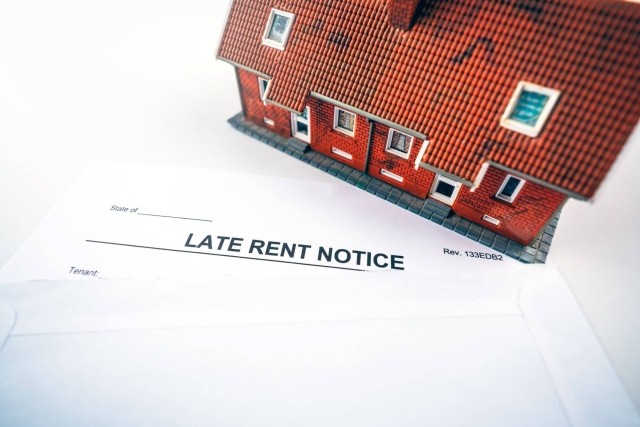There are many reasons why tenants pay rent late or stop making payments entirely. As a landlord, it’s important to know what to do in this situation. Before making any rash decisions, take a look at your options, especially if there’s a way to resolve the situation without taking serious measures, such as eviction.
Talk with Your Tenant
The first step should always be to have a calm, rational conversation with your tenant. Give them a written reminder to inform them that their rent is late and that they will be charged a late fee. If this has happened more than once, you should either call your tenant or talk to them in person if you can. Simply ask your tenant why they haven’t been paying their rent. It’s important to be understanding with your tenants, but you should also be firm about the importance of rent being paid on time every month.
In an ideal scenario, your tenant will give you a legitimate reason for why their rent hasn’t been paid, such as job loss or illness preventing them from working. You could choose to come up with a payment plan or negotiate rent if you’re willing, especially if they’ve been a good tenant otherwise. If you cannot come to a resolution with your tenant after addressing the problem, you may need to take next steps.
Send a “Pay or Quit” Notice
Most states require landlords to send a notice to pay or quit when a tenant fails to pay rent. This is a formal letter (or email) that informs the tenant they’ve forgotten to pay rent and how many days they have to pay it in full before their lease is terminated and they will be forced to move out. Typically, the number of days the tenant has to pay the balance is relatively short, ranging from three to five days. Check with your state laws on the matter to clarify if there’s a date range must to follow when giving proper pay or quit notice.
Most tenants (if able) will pay their overdue rent or choose to move out of the property. However, there are other options to consider if this doesn’t pan out for you.
Consider Cash for Keys
If your tenant doesn’t pay rent after you’ve discussed their options with them, you still have a chance to avoid the eviction process. It’s time to make a deal with your tenant. If your tenant isn’t paying rent because of financial problems, they might be motivated to move out of the property if paid. If you’re wondering why you should have to pay them if they’re the ones that owe you money, the answer is simple. Evicting the tenant will get them out of your property, but it will take time and money on your part.
Treat this scenario as a professional rather than taking it personally and weigh the costs and benefits. If your tenant leaves immediately because of a cash for keys situation, you can avoid the stressful eviction process and focus on finding a new tenant to rent your property.
Hire a Property Manager or a Lawyer
If this situation is getting too much for you to handle, it may be time to consider hiring a property manager or even a lawyer. The property manager or management company will be a neutral third party that has effective steps in place for handling unpleasant situations such as this. Alternatively, you could hire a lawyer to provide other notices and formal letters to the tenant, urging them to pay rent or deal with the consequences (being evicted). Either way, a tenant who stops paying rent puts you in a stressful position as a landlord, so it may be helpful to have some assistance in dealing with this situation professionally and effectively. If your rental is listed on Apartments.com, you can have your tenants set up automatic payments through Rental Tools. Automated email reminders will go to tenants each month with late fees already included if rent is past due.
File for Eviction
Filing for eviction should be your absolute last option. If you’ve tried everything else and your tenant still refuses to pay rent, then it’s time to take the plunge and file for eviction. Remember that as the landlord, it is illegal to lock out a tenant or turn off essential utilities, but you can file an eviction action and get help from your local court and authorities. You’ll likely need to include the notice to pay or quit that you sent your tenant, along with any other written notices informing your tenant that they owe you rent. Once you pay the court fees, the administrator will schedule your hearing, which is usually two to six weeks out. You could be responsible for serving the tenant the subpoena, but oftentimes courts will do this for you.
Rules and regulations for how to evict a tenant vary by state and local law, so be sure to stay informed or consult with an eviction lawyer to help guide you through the process. Show up for your court date, explain your case, and hope to win a judgment against your tenant. After you’ve won, you can enlist the help of law enforcement to remove the tenant or stand by as the tenant moves out of the property.
If your tenant stops paying rent, you can tell them their options and hopefully come to a solution, send formal notice, offer to pay them to leave, consult with a property manager or lawyer, or finally, file for eviction. Keep in mind that evictions are timely and costly, so they should be a last-ditch effort to remove the tenant from your property, only being considered if all else fails.











